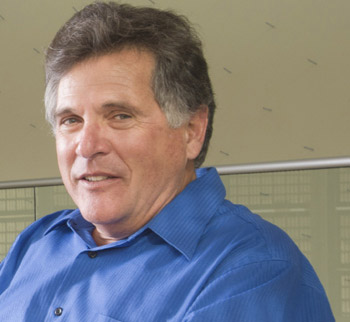A leading Israeli expert on water believes a war over the precious liquid is improbable.
Water “might be a trigger for conflict. It might cause tension. Western experts see the potential for conflict. But none of the wars in the [region] were caused by water,” says Prof. Eilon Adar.
“Based on the Middle East experience, I can say [war over water] is very unlikely.”
Besides, if water is scarce in the region – and it is – Israel simply makes more of it, said Adar, director of the Zuckerberg Institute for Water Research at Ben-Gurion University of the Negev.
“In Israel, we already consume, by far, more water than God provides us with,” Adar told The CJN in an interview prior to his talk last week at the Lodzer Centre Congregation. “So we create more water.”
Using innovative technologies, Israel does this by recycling water through sewage treatment and by desalinating both seawater and saline ground water.
In 2012, Adar said, Israel will desalinate about 400 million cubic metres of water at a cost of some $200 million. Sewage treatment, he said, costs roughly the same.
Having coped with decades of water shortages, Israel has gained tremendous experience in developing unique solutions for water issues, Adar said.
The nation recycles 82 per cent of the sewage produced by Tel Aviv and its suburbs. That water is treated and used in the agricultural sector, including irrigation.
Seventy per cent of Israel’s drinking water comes from groundwater reservoirs and 30 per cent from the Mediterranean.
And the message of conservation seems to have gotten through in Israel, he said. Total per capita water consumption is about 500 cubic metres per year (by contrast, Canadians use 1,600 cubic metres of water per person per year).
“Nobody in the world gets close to us regarding water-use efficiency,” Adar noted.
That’s especially true in the agricultural sector, he added. In Israeli greenhouses, which account for most of the country’s intensive agriculture, “irrigation efficiency” sits at between 85 and 92 per cent.
“That means that 85 to 92 per cent of water is consumed by the plant,” Adar pointed out.
About two-thirds of water used in farming is reclaimed sewage water, 25 per cent is fresh and about seven per cent is brackish, or salty. Certain crops – tomatoes, melons and asparagus – thrive on saline water.
“Our farmers managed to show everyone that you can do more with less,” Adar said.
A hydrologist who’s headed BGU’s Zuckerberg Institute for Water Research since 2002, Adar tries to steer clear of politics. He calls water “a commodity,” but knows how explosively political it can be.
He scoffs at Palestinian claims that Israel is stealing water from the West Bank.
“What does that mean, to steal? Every major water resource in the Middle East is cross-border,” Adar pointed out. Besides, he added, water naturally flows from the West Bank across Israel toward the Mediterranean.
According to the Zuckerberg Institute, all groundwater reservoirs in the Middle East are shared by at least two countries: Israel and Jordan (Arava aquifers); Syria, Israel and Lebanon (Jordan River resources), and Israel and the West Bank (Judean and coastal aquifers).
Such is the significance of water in the Middle East that it’s prominent in all existing peace treaties, the facility stresses.
Adar pointed out that the only still-functioning committee of the otherwise failed Oslo peace accords with the Palestinians is the one dealing with water.
“By all practical means, Israel and Palestine agree on water issues. But the difference is, the Palestinians say, let’s sign the agreement on water. Israel says no, the water will be part of a comprehensive peace treaty. We agreed on water issues with Jordan years ago.”
Adar said Palestinians have called on Israel to supply them with an additional 300 million cubic metres a year, at roughly $175 million annually. He thinks it’s worth it. “Do I have to tell you how much one day of a war costs?”
He doesn’t blame Palestinians for failing to expand their own water resources.
“Their hands are tied. Israel still says that unless a peace treaty is signed to include water issues, we control the West Bank.” Even in areas controlled by the Palestinian Authority, its water authority can develop resources only with Israel’s consent.
As for improving the quality of water they have, Adar said Palestinians “do almost nothing.”
“It’s a very delicate issue, and we have to reach an agreement on how to co-operate and manage and develop this cross-border common water issue.”
